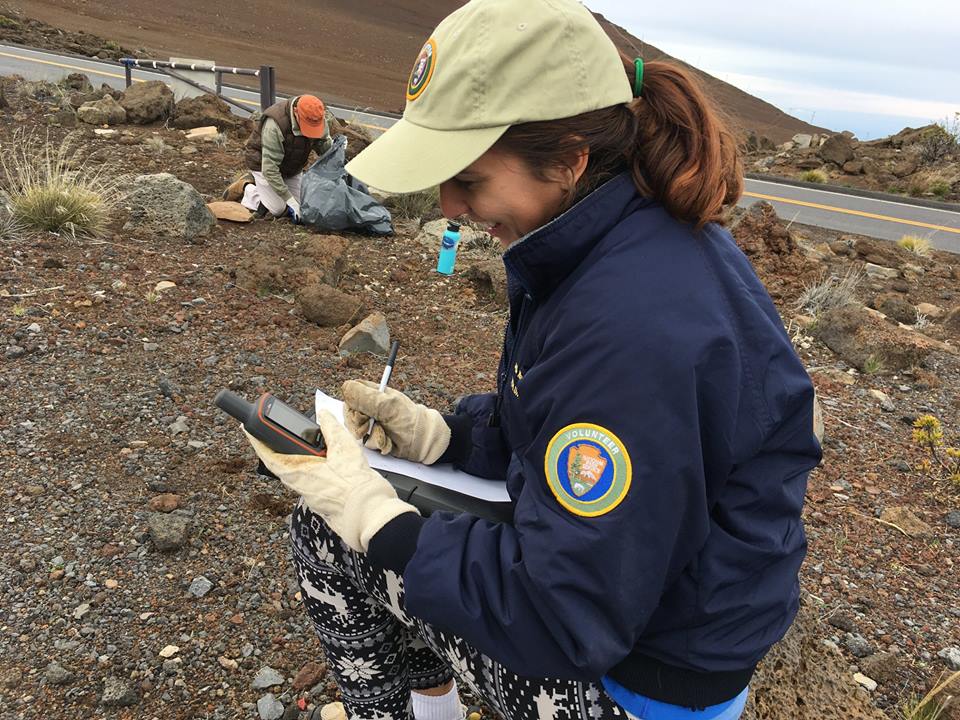6,342 Invasive Pines Removed at Haleakalā, Volunteers Sought
Haleakalā National Park and the Pacific Whale Foundation are recruiting local volunteers for Waele ma Haleakalā, a twice-monthly invasive plant removal project.

Volunteers remove invasive plants at summit of Haleakalā. PC: Haleakalā NP.
Park rangers say ‘waele’ translates to weed, clear, or remove weeds. Another meaning is that by caring for the land, the land will take care of you.
The next Waele ma Haleakalā will occur this Saturday, April 7, 2018. Since April of last year, Waele ma Haleakalā volunteers have pulled 6,342 invasive pines and almost 2,500 invasive plants.
Volunteers will physically remove young pine trees and other small invasive plants from the Summit District. Transportation, training, hand tools, gloves, and other equipment will be provided. Please sign up by 7:30 a.m. on Friday, April 6, 2018, by contacting the Pacific Whale Foundation at (808) 249-8811. Space is limited to 11 volunteers.
Waele ma Haleakalā projects are scheduled on the first and third Saturdays of each month. Volunteers will receive a Hawaiʻi Tri-Park Pass after 12 volunteer hours (3 Waele ma Haleakalā projects), through a donation provided by the Hawaiʻi Pacific Parks Association. This one-year pass covers admission to Hawaiʻi Volcanoes National Park, Puʻuhonua o Honaunau National Historic Site, and Haleakalā National Park. Volunteers will also receive a volunteer t-shirt.

Volunteer records gps data on locations of invasive plants at Haleakalā. PC: Haleakalā NP.
Volunteers will be picked up at Māʻalaea Harbor at 7:30 a.m. or at the main parking lot of the Pukalani Community Center at 8 a.m. Participants will work for three hours, visit the summit, and be dropped off by 3 p.m. Volunteers should bring water, snacks, and sun protection; wear sturdy shoes and dress in layers; and be prepared to hike on uneven surfaces.
Volunteers will pull out very young pines, saw down small older pines, or pull out other small invasive plants, such as evening primrose. Volunteers will work with park staff and a Pacific Whale Foundation certified naturalist.
Three non-native pine species (Monterey pine, Mexican weeping pine, and maritime pine) are highly invasive. Park rangers say they displace endemic and endangered species, change soil chemistry, and increase the potential for wildfire in habitats not adapted to fire. Park staff, partners, and volunteers periodically pull young pines to keep them from spreading throughout the park.










